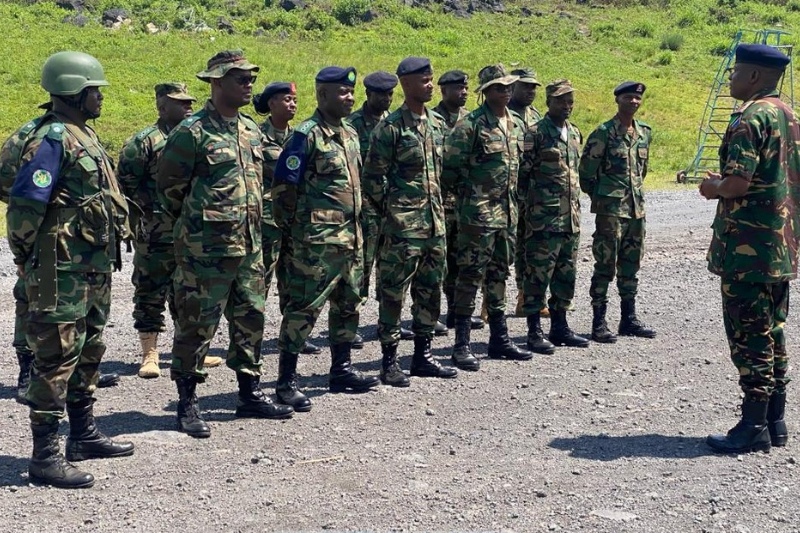The SADC Peacekeeping Force suffers losses.
A mortar attack in the Democratic Republic of the Congo (DRC) has resulted in the deaths of three Tanzanian soldiers and left three others wounded, according to the Southern African Development Community (SADC). The soldiers were part of a peacekeeping force that assisted government troops in combating M23 rebels in the restive eastern region of the DRC.
Casualties and Ceremony
Reports indicate that the mortar attack occurred last Thursday, leading to fatalities among the Tanzanian soldiers stationed at a camp near the provincial capital, Goma. SADC held a ceremony on Monday at its headquarters in Goma to honour the fallen soldiers. Additionally, a soldier from South Africa succumbed to unspecified health issues while receiving medical treatment.
Ongoing Conflict and Allegations
Two South African soldiers lost their lives in a similar mortar attack near Goma in mid-February, marking the first losses for the SADC peacekeeping force. The recent casualties among Tanzanian troops underscore the persistent violence and instability in the eastern DRC. Conflict involving local and foreign armed groups has plagued the region for nearly three decades.
Accusations against Rwanda
The DRC, along with the United Nations and Western nations, has accused neighbouring Rwanda of supporting rebel groups in the region, including the M23 rebels. The allegations suggest a motive for controlling the valuable mineral resources in the eastern DRC. However, Rwanda denies supporting the rebels.
Keep Reading
The Eastern DRC faces challenges.
The resurgence of armed groups, including the M23, has intensified the conflict in North Kivu province. Despite efforts to maintain peace and stability, the region continues to face significant challenges, posing risks to civilians and peacekeeping forces alike.
International Responses and Efforts
The mortar attack on SADC peacekeeping forces highlights the urgent need for continued international attention and support to address the complex conflict dynamics in the eastern DRC. The involvement of regional actors, including Tanzania, South Africa, and Malawi, underscores the collaborative efforts aimed at stabilising the region.
Calls for Regional Cooperation
Efforts to address the root causes of the conflict, including issues of governance, resource management, and ethnic tensions, require sustained cooperation among regional stakeholders. Regional organisations such as SADC play a crucial role in facilitating dialogue and coordinating peacekeeping efforts.
Humanitarian Concerns and Civilian Protection
Amidst the conflict, the protection of civilians remains paramount. The escalation of violence not only threatens the lives of peacekeepers but also exacerbates humanitarian challenges, including displacement, food insecurity, and access to essential services. It underscores the importance of prioritising civilian protection measures in conflict-affected areas.
The path to sustainable peace
Achieving sustainable peace in the eastern DRC necessitates a comprehensive approach that addresses both the immediate security concerns and the underlying drivers of conflict. This includes promoting inclusive dialogue, addressing grievances, and supporting initiatives for reconciliation and socio-economic development.
The recent mortar attack resulting in casualties among Tanzanian soldiers underscores the ongoing challenges faced by peacekeeping forces in the eastern DRC. As efforts continue to address the conflict and stabilise the region, international cooperation, regional engagement, and a commitment to civilian protection remain essential. Despite the complexities involved, sustained efforts towards peace and stability offer hope for a brighter future for the people of the DRC and the region as a whole.

